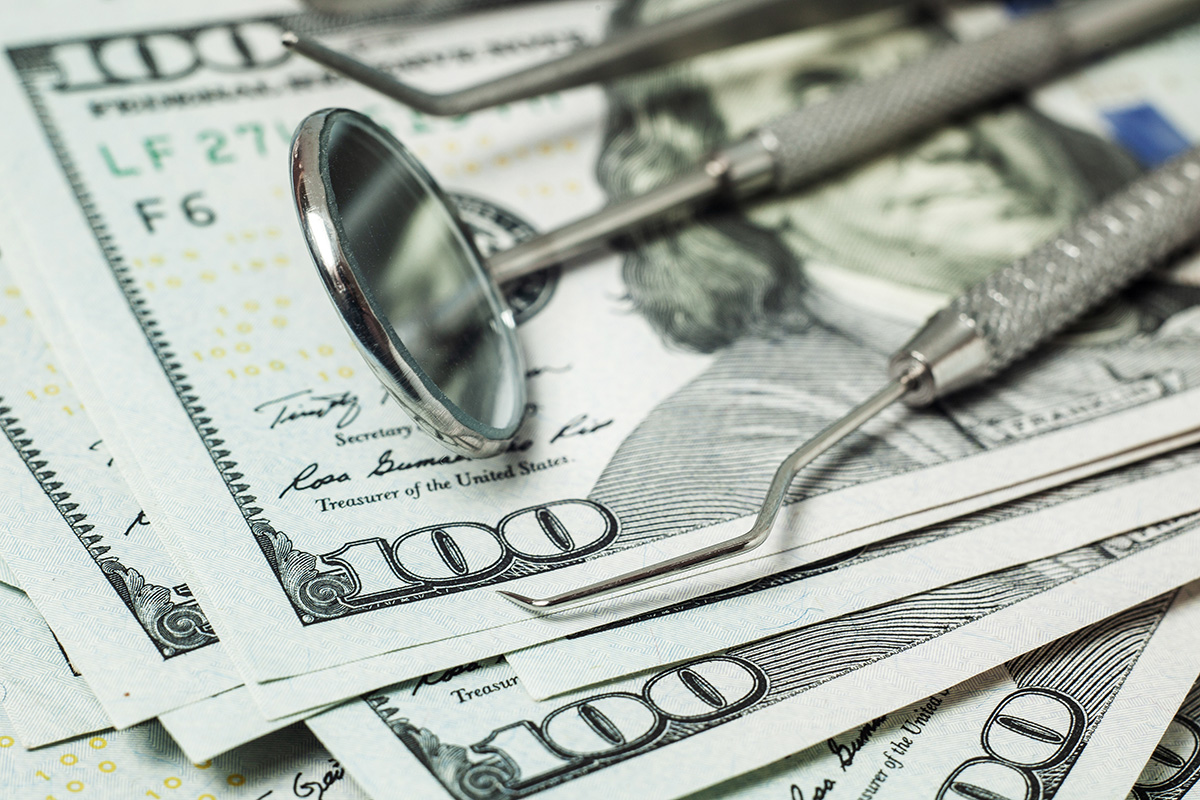Dental treatment is an investment in your good health. Financial considerations should not be a barrier to getting the care that you need. Dr. Jayne, and our team, work with you to create treatment scenarios that help maximize your insurance benefits, untaxed health care saving (HSA) dollars, and provide you with options for credit, some at 0% APR so that you can pay for care over time.
There’s no question that healthcare costs in general have skyrocketed in recent years. And, we remain conscious, careful, and conservative when it comes to elevating costs of care.
If you have a full-time job, chances are your employer provides health and dental insurance, to help offset costs of care. For those who are self-employed or buy their insurance from Healthcare.gov, the coverage options are often more limited and more expensive. When it comes to what’s covered by dental insurance plans, know before you go.
What does dental insurance cover?
In general, most dental insurance covers a yearly maximum amount of around $1,000 to $1,500 on average. We recommend you check with your insurance benefits provider to understand the specifics of your policy before accepting a dental treatment plan.
Some dental benefits plans can be restrictive in what they do and do not pay for. Most dental plans cover the cost of some or all the following procedures:
- Preventative exams and x-rays
- Teeth cleaning
- Fillings
- Crowns
- Dentures
- Bridges
- Root canals
- Oral surgery (coverage varies)
The coverage structure differs by procedure, with most dental insurance plans following a 100-80-50 model. This means your dental plan will most likely cover 100% of your preventative care, 80% of basic procedures such as fillings and 50% of the cost of a major procedure such as a root canal.
Cosmetic procedures, such as teeth whitening, tooth-shaping, and veneers are usually not by most dental insurance plans.
If your yearly maximum is $1,500, you can count on your dental insurance covering your two annual preventative visits, and the cost of a filling if you have a cavity, but not much else. Unfortunately, if you need more extensive dental work you could easily exceed your yearly coverage amount.
What to do if dental treatment exceeds your coverage maximum?
Because caring for your teeth is an important part of maintaining your overall health, you shouldn’t delay dental care. The good news is our care team can help you find a financial solution to getting the dental care you need, with insurance or without it.
If the cost of dental treatment isn’t covered by your insurance, our practice leads Karen and Andrea will work with you to come up with plan to get the care you need. We often combine methods to make treatment as financially comfortable as possible. Some of the strategies we use are:
- Maximize Benefits
Before we ask for any out-of-pocket coverage by you, we seek to maximize and leverage any and all benefits available to you. This can look like exploring your dental insurance plan, HSA coverage and potentially planning for the coming year, and researching other insurance policies, this is more important if your dental health need results from a physical accident like a fall or crash.
- Phased treatment
In many cases, major dental work can be planned in phases, so as not to break the bank. For example, if Dr. Jayne recommends several crowns to restore the health of your teeth, he might agree to use a phased approach placing some of the crowns in October and more in January once your insurance and benefits policies have renewed. This approach offers you some time to financially plan, and possibly maximize HSA savings in the coming year.
- Financing plans
If you prefer to pay by financing your dental work, Karen and Andrea can help you identify well-vetted and well-established creditors that focus on health. Some of the credit groups we are familiar with offer APRs as low as 0% Great rates can make it a little less stressful to pay for care over time.
- Cash discounts
Cash and check payments are great way to get a small discount on dental care services. If you are able to pay out-of-pocket, our office doesn’t incur credit card processing fees. We are be happy to pass the discount along to you.
Please don’t hesitate to talk to us about your dental plan, yearly maximums, HSA, and payment options. We are happy to find a structure that works best for you. Contact Dr. Jayne for more information and to schedule your next smile visit today.








